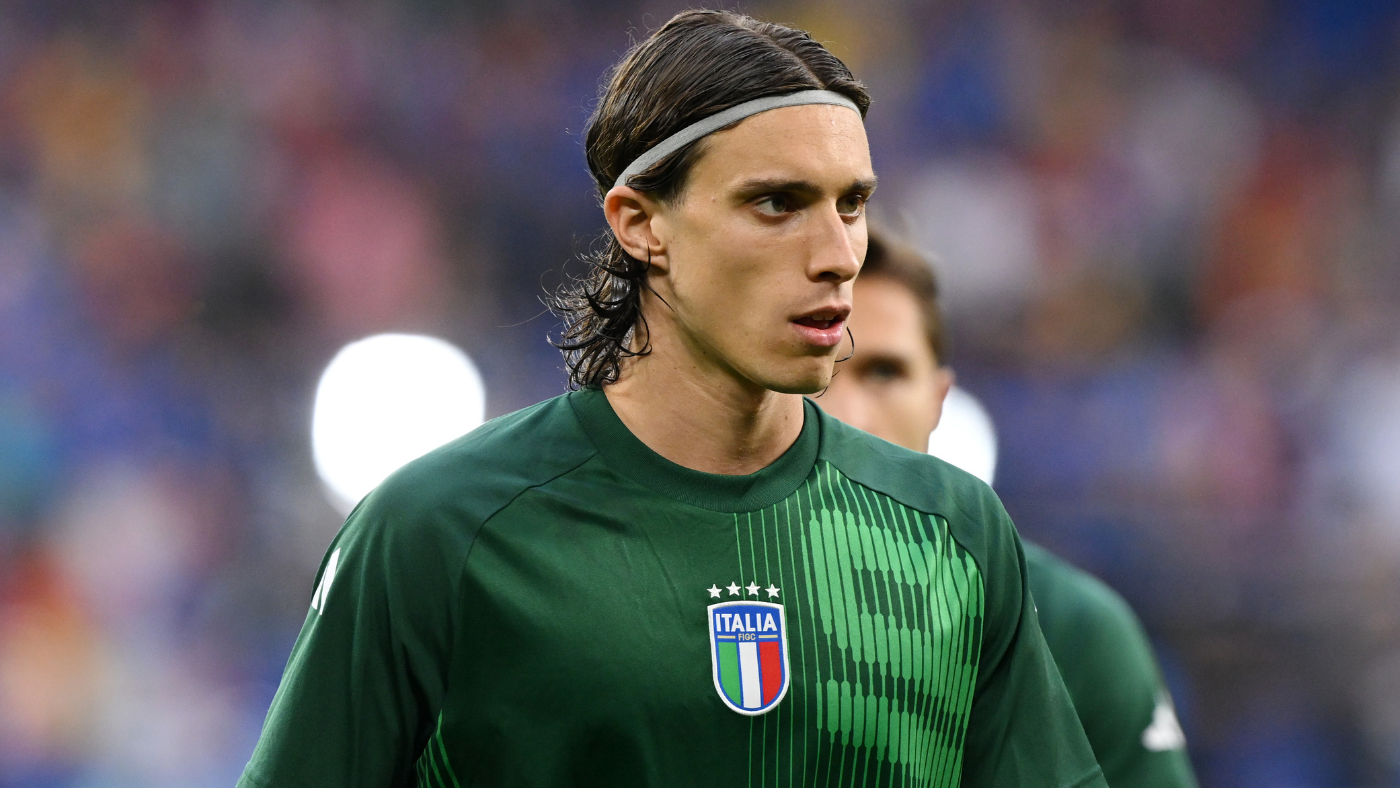South Korea advanced to the AFC Asian Cup quarterfinals on Tuesday after defeating Saudi Arabia on penalties, overcoming a 1-0 defeat and an underwhelming showing for 80 minutes to continue their quest to win the competition for the first time since 1960.
By pressing sign up, I confirm that I have read and agree to the Terms of Use and acknowledge Paramount’s Privacy Policy.
Please check the opt-in box to acknowledge that you would like to subscribe.
Thanks for signing up!
Keep an eye on your inbox.
Sorry!
There was an error processing your subscription.
Saudi Arabia scored first on a 46th-minute goal from Abdullah Radif, who came on just moments earlier, and they seemed poised to stave off a South Korea side that put in an uninspiring performance for much of the match. South Korea, though, put together a late flurry of shots and with roughly 90 seconds to go before they were eliminated, Cho Gue-sung scored the equalizer that sent the match to extra time.
Momentum favored South Korea throughout the extra time period, and captain Son Heung-min even had a clear look at goal in the 108th minute. Neither side were able to break the deadlock after 120 minutes and so the match was decided on a penalty shootout, which South Korea won 4-2.
It marked a shocking elimination for Saudi Arabia after being on the brink of advancing, who splurged in August to lure Roberto Mancini away from Italy a year before the reigning European champions were scheduled to defend their title in the summer. Mancini made a dramatic exit of his own from the match, heading down the tunnel before the penalty shootout was over.
South Korea manager Jurgen Klinsmann changed formations from a 4-4-2 to a 4-2-3-1 for the knockout match after an unimpressive showing during the group stage, when the team won just one of their three matches and conceded six goals. Their draws against Jordan and Malaysia, two games in which South Korea were the clear favorites, meant the team finished second in their group. Though they avoided a round-of-16 clash with Japan, who also finished runners-up in their group, a game against Saudi Arabia posed its own challenges for an inconsistent South Korea team.
The defense appeared more stable against Saudi Arabia, conceding just three shots on target and 0.79 expected goals during the first 90 minutes. Yet, the team that scored eight times during the group stage seemed unable to pose an attacking threat for much of the round-of-16 matchup and took just four shots by the 80th minute. South Korea then took 11 shots in the final 10 minutes of regular time and scored on the last one of those attempts.
Despite continuing their run, South Korea have underperformed. The national team boasts top talent like attackers Son and Lee Kang-in and defender Kim Min-jae, which is why they entered the continental championship with high hopes. South Korea also lead Asian Cup teams for possession, touches, passes and passing accuracy and also ranks within the top three in a handful of attacking categories but under Klinsmann have failed to take advantage of their qualities at the tournament.
As a result, the performances serve as a newfound judgment on Klinsmann’s abilities as a manager. He went into the matchup against Saudi Arabia with plenty of pressure on him from the South Korea faithful, who have questioned his commitment to the job. Klinsmann, a German and American citizen, still lives in Los Angeles and visits the Asian nation occasionally while sending his assistants to watch domestic league games. The manager has also said he is dealing with a “learning curve” since this is his first job in Asia but added that “hopefully I’m a great learner,” per The Athletic.
Criticism only grew louder after the team wrapped up the group stage with a 3-3 draw against Malaysia, when South Korea came back from 2-1 down and then relinquished a 3-2 lead in the dying minutes of the match. Klinsmann was condemned for smiling on the touchline post-match, something he defended while deflecting blame from himself in a Monday press conference.
“My smile was because I saw it coming,” he said, per ESPN. “It was a game where we had nearly 85% possession, 20 corner kicks, many chances and did not score another goal. Usually in football, this is what happens in the very last minute if you don’t finish off the game; you get punished.”
Depending on how it ends, South Korea’s Asian Cup outing could also be an indictment on Klinsmann’s managerial career. Nearly two decades on from his third-place finish at the World Cup with Germany, Klinsmann has struggled to reach any semblance of those heights at various high-profile jobs.
His follow-up gig was with Bayern Munich, but he did not even last a full season before he was fired in April 2009 and won no trophies with the storied club. He then had a short and fairly insignificant stint as a consultant for MLS’ Toronto FC before taking the U.S. men’s national team job in 2011. He guided the team to a Concacaf Gold Cup win in 2013 and a round of 16 finish at the 2014 World Cup but failed to revolutionize the program despite promising as much and was fired in 2016 after a poor start to 2018 World Cup qualifying, a tournament the USMNT eventually missed.
Klinsmann’s only role in between his time with the USMNT and South Korea was with Hertha Berlin, but he lasted just 10 weeks on the job.
The task does not get any easier for Klinsmann and company. They return to play on Friday against Australia, a team considered one of the favorites to win the whole thing and one of the few top sides left that has successfully overcome their hurdles all tournament long.


